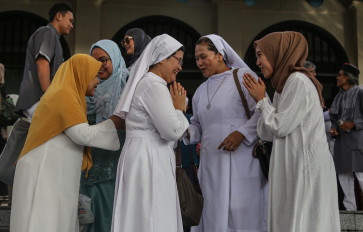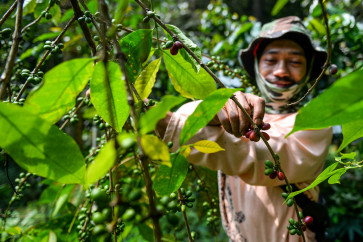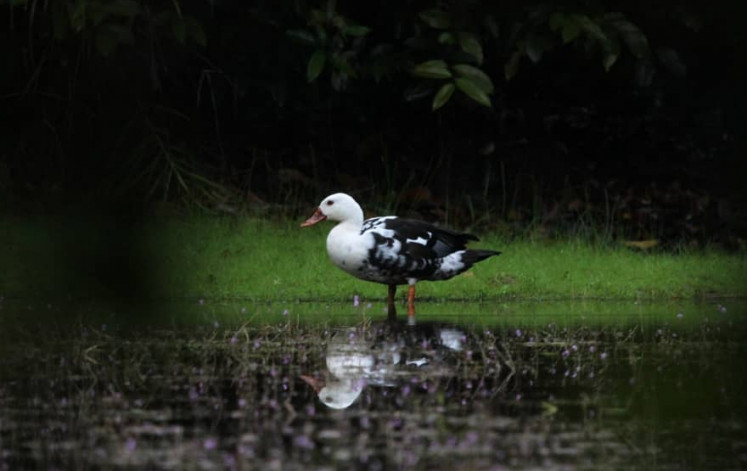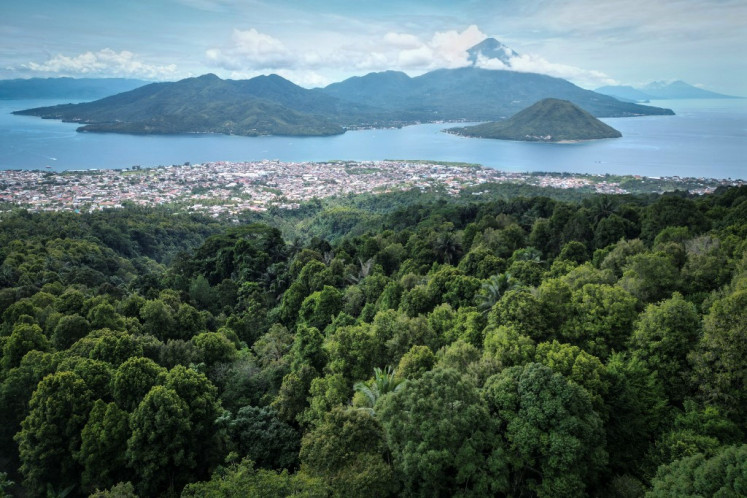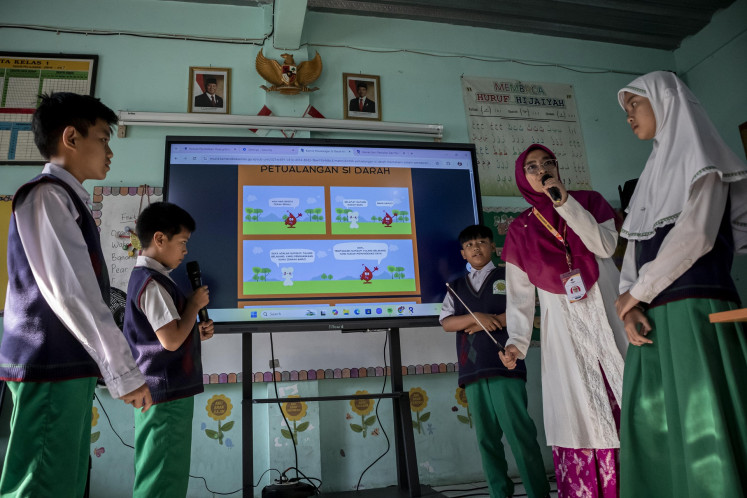Laksmi Pamuntjak's passion for all things culinary
The Birdwoman’s Palate, the English translation to Laksmi’s novel Aruna & Lidahnya ( 2014 ), was published in January this year.
Change text size
Gift Premium Articles
to Anyone
 Laksmi Pamuntjak (laksmipamuntjak.com/-)
Laksmi Pamuntjak (laksmipamuntjak.com/-)
Although not obvious at first, the kitchen and how we approach cooking, recipes and ingredients are a perfect metaphor for life.
In her latest book, critically acclaimed Indonesian novelist, poet, journalist and food writer Laksmi Pamuntjak paints a colorful picture of the relationship between friendship, self-discovery and mouthwatering delicacies.
The Birdwoman’s Palate, the English translation to Laksmi’s novel Aruna & Lidahnya ( 2014 ), was published in January this year.
The book follows protagonist Aruna, an epidemiologist dedicated to food and avian politics, on her journey across Indonesia to research bird flu cases where she discovers the country’s culinary treasures together with two friends and a coworker.
It was also recently announced that Palavi Films has acquired the rights to adapt the novel for the silver screen. Directed by Edwin with a screenplay by Titien Wattimena, the movie is scheduled for release in late September and will star Dian Sastrowardoyo as Aruna.
Read also: Dian Sastrowardoyo to star in Laksmi Pamuntjak’s book-to-movie adaptation
Laksmi talked about her lifelong love affair with food during the recent event “Temu Sastra” at the Rumah Budaya Indonesia in Berlin.
“I come from a family that is very passionate about food,” she recalled. “We had a cook who created the most wonderful dishes for us at home, so I was lucky enough to grow up surrounded by good food. We also had a tradition as a family to go out and try new restaurants together.”
Whenever she travels abroad, Laksmi likes to keep this tradition alive by visiting different restaurants.
She quickly realized that, compared to many other cuisines, preparing Indonesian dishes is rather labor-intensive, as they require a large variety of spices and condiments – which is arguably the main reason behind the archipelago’s flavorful and rich culinary scene.
With The Jakarta Good Food Guide, she elevated the art of food writing in Indonesia to a new level. A guide to more than 500 restaurants, cafes and street vendors scattered throughout the capital, the series – published between 2001 and 2010 – not only includes insightful reviews but also personal observations and essays on culinary traditions and heritage.
In The Birdwoman’s Palate, Laksmi shows the process of cooking can mean so much more than just preparing a meal – it can be about coming out of one’s shell, to be more open for new things and to expand one’s horizon. Talking about cooking can become a metaphor for love, hatred and revenge, but also sociology, politics and religion.
Food plays a vital role in everyone’s life – sometimes even more than we realize, because it is something we take for granted.
Sharing a personal story, Laksmi remembered her late husband, who passed away from cancer at the age of 44. During his last weeks, she said, he was on a drip, unable to ingest solid food, yet he continuously watched food channels on TV.
“I thought it was too much to bear to see all this food when he couldn’t even taste it himself anymore, but then I realized that many of our best life memories are related to food,” she said. “He talked a lot about the restaurants we had gone to together, the dishes we had eaten.”
Read also: Laksmi Pamuntjak wins international award for female authors
After the international success of her debut novel The Question of Red (Amba in Indonesian) – a sweeping love story during the political turmoil in Indonesia in the 1960s – it may seem at first glance that Laksmi is turning away from political issues with The Birdwoman’s Palate, but instead, she said it was a natural development, given her background in food writing.
In any case, Laksmi added, her approach to writing a novel remained the same.
“When you are writing, you have to be willing to do thorough research, expand your knowledge and most of all, be passionate, regardless of the topic,” she said. “And even though The Birdwoman’s Palate mainly revolves around food, it also touches on more serious issues, like corruption and bird flu.”
The evening with Laksmi, whose sequel to The Question of Red will be published in August, was the first in the new event series called “Temu Sastra” (Literary Encounter), which, according to Ahmad Saufi, cultural attaché of the Indonesian Embassy in Berlin, is dedicated to Indonesian literature and its main protagonists, including authors and translators.
The event encourages the audience to discover Indonesian literature through discussions with the authors, readings as well as Q&A sessions.
“Indonesian literature experienced a global boost since Indonesia was the Guest of Honour country at the Frankfurt Book Fair in 2015,” he said. “To accommodate the growing interest in Indonesian literature, we decided to establish this new forum.”

